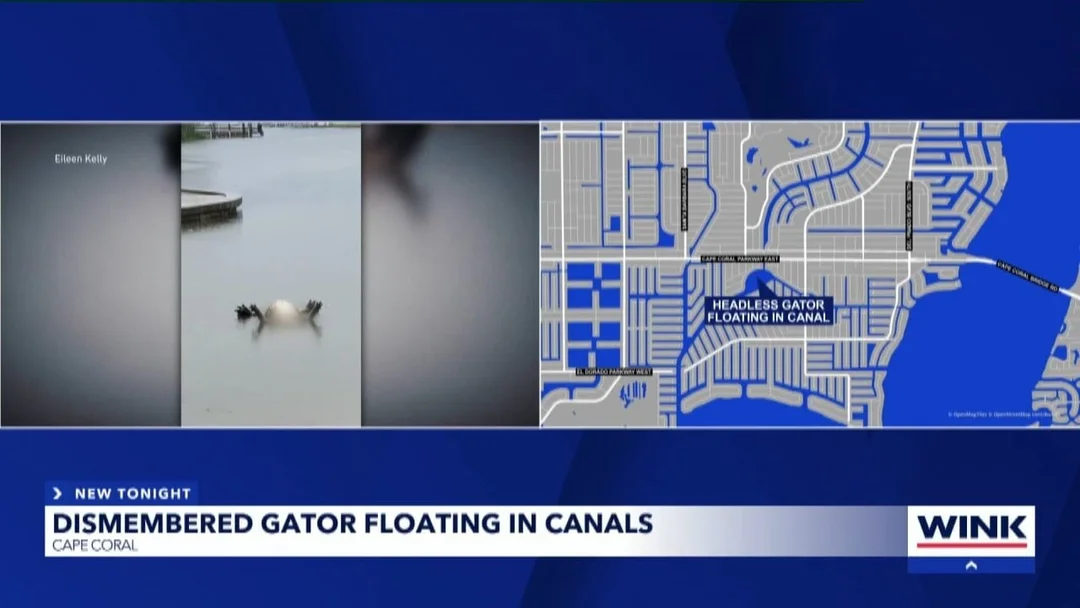
What Lurks in Florida’s Waters? The Eerie Discovery of a Headless Alligator
In the serene canals of Cape Coral, Florida, a routine day turned into a scene from a thriller when locals stumbled upon a gruesome find: a headless and tailless alligator carcass. This unsettling discovery not only captivates the imagination but also raises serious concerns about wildlife poaching and environmental enforcement in the state.
The story began on May 13 when Cape Coral resident Gloria Baenen noticed a pungent, fishy odor near her pontoon boat. Intrigued and alarmed, she investigated and found the alligator floating belly-up, devoid of its head and tail. "Someone said there was a gator but no head," Baenen recalled to local media, her words echoing the shock felt across the community. "Outside here, we see stingrays and dolphins numerous times. Never a gator—and never like this." Her prompt report to the Florida Fish and Wildlife Conservation Commission (FWC) sparked an official investigation.

FWC officers arrived swiftly but found the carcass had drifted away. Using scent dogs, they located the remains in shallow water, now mostly skeletal and swarmed by flies. The agency removed it to deeper waters for natural decomposition, all while treating the incident as an active investigation. Officials emphasized that harvesting or possessing an alligator outside the regulated hunting season—from August 15 to November 1—is illegal and requires special permits. With demand for these permits soaring, as over 15,000 applicants vie for just 7,000 slots, enforcement challenges are evident.
This isn't an isolated event. Just last week, similar mutilated alligators were found in nearby Fort Myers Shores, about 20 miles away, leaving experts baffled. Alligator heads and tails are prized trophies and ingredients—heads for curios and tails for their tender meat—fueling a black market that threatens Florida's ecosystem. Baenen herself pondered, "I don’t understand how a headless alligator could be so newsworthy, but it’s kind of cool," blending curiosity with unease. The repeated occurrences suggest a pattern of illegal activity, potentially endangering not just alligators but the broader balance of Florida's wetlands.

Comparisons to past cases highlight the growing need for stricter wildlife protections. Poaching not only violates laws but also disrupts local biodiversity, affecting species that rely on alligators for ecosystem health. As Florida's canals continue to be a hub for marine life, incidents like this underscore the human impact on nature.
In summary, this headless alligator mystery serves as a stark reminder of the vulnerabilities in wildlife conservation and the potential for illegal hunting. What do you think is behind these disturbing finds? Is poaching the culprit, or could there be more to the story? We invite you to share your thoughts in the comments and help spread awareness about protecting Florida's natural treasures.